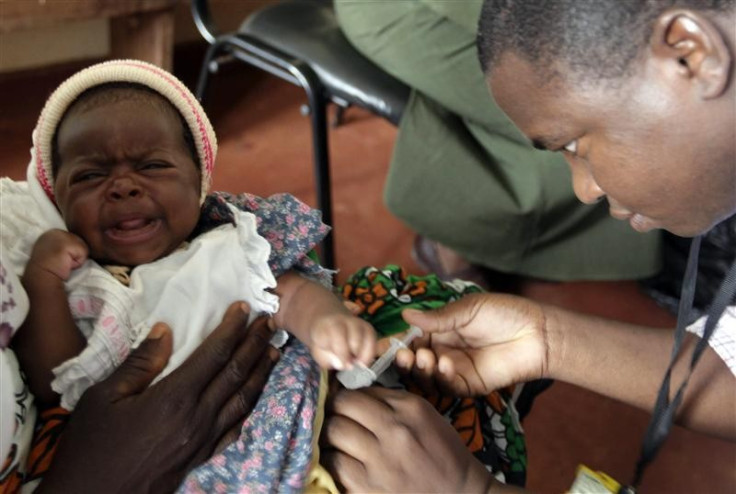World's First Malaria Vaccine 'On Track for 2015'

The world's first malaria vaccine could be approved in 2015, a study has revealed.
The paper, published in PLOS Medicine, showed promising results about a possible malaria cure.
Researchers from RTS,S Clinical Trials Partnership gave RTS,S/AS01 - the most advanced malaria vaccine - to 6,537 infants aged six to 12 weeks, and 8,923 children aged five to 17 months, at 11 African sites with high risks of malaria contraction.
After an 18-month follow-up, researchers found that for every 1,000 infants and children who received the vaccine, 449 of the younger age group and 829 of the higher age group did not contract the virus.
The findings showed that RTS,S was able to avert malaria, but it was more effective in children than in infants.
"These findings suggest that vaccination with RTS,S/AS01 could have a major public health impact in sub-Saharan Africa," the paper said.
RTS,S is undergoing the last phase of clinical testing before being licensed. This is the first time a malaria vaccine has reached this stage.
Prof Sanjeev Krishna of St George's University of London, who was not involved in the research but reviewed the paper for the journal, told the BBC: "This is a milestone. The landscape of malaria vaccine development is littered with carcasses, with vaccines dying left, right and centre.
"To get to this stage is very encouraging indeed. We eagerly await the next results to see how long-lasting protection is and whether a booster adds further potential.
"We need to keep a watchful eye for adverse events but everything appears on track for the vaccine to be approved as early as next year."
Vaccine manufacturer GlaxoSmithKline (GSK) applied for approval of RTS,S with European regulators.
"This is a key moment in GSK's 30-year journey to develop RTS,S and brings us a step closer to making available the world's first vaccine that can help protect children in Africa from malaria," Sophie Biernaux, the head of the malaria vaccine franchise at GSK, said.
At least 207 million people are affected by malaria worldwide, according to the World Health Organisation's latest report.
© Copyright IBTimes 2024. All rights reserved.






